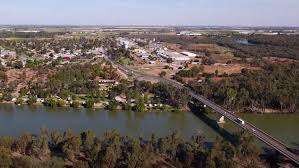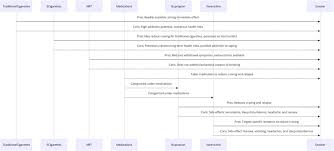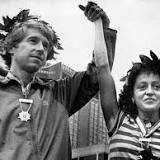How former US president Jimmy Carter transformed US policy ...

The 39th president of the United States, Jimmy Carter, is remembered for his transformative role in Asia, particularly for normalising relations with China more than four decades ago.
Mr Carter, who died aged 100 on Sunday and was the longest-living US president, is remembered for leading a major shift in US foreign policy.
Biographer Jonathan Alter said Mr Carter, who won the Nobel Peace Prize in 2002, left a legacy as a "peacemaker, global humanitarian and underrated American president".
Mr Carter's decision to normalise US-China relations helped reshape the global economic and political order, while his emphasis on human rights challenged oppressive regimes.
Here's what experts say about Mr Carter's legacy in Australia's region.
Loading...Ending the Cold War view of China
When Mr Carter entered office in 1977, Asia was still grappling with the fallout of the Vietnam War while the Soviet Union vied for influence in the region.
His administration recognised the People's Republic of China in 1979 — a pivotal move that redefined US policy toward Asia.
"American discourse shifted under Carter, from viewing China as an enemy to establishing diplomatic ties," said Charles Darwin University foreign policy expert John Garrick.
"The administration saw China as a potential democracy and a vast market for US goods."

Mr Carter welcomes Deng Xiaoping to the White House in January 1979. (Via Wikimedia Commons)
China had just emerged from the brutality of the Cultural Revolution and was undergoing a shift in economic policy under new leader Deng Xiaoping, who introduced the idea of a socialist market economy.
However, some argue Mr Carter's belief that economic reform would lead to political liberalisation was naive.
"These views ignored evidence at the time," wrote George Washington University's Yan Chang Bennett in her recent book, American Policy Discourses on China.
"China remained staunchly communist and resistant to foreign influences," she said.
And Dr Garrick argued that Mr Carter's idealism required difficult trade-offs.
"He was a strident human rights champion, but his administration turned a blind eye to China's human rights abuses, including political imprisonment and forced labour camps," he said.
A new China policy
While maintaining cultural, commercial and other unofficial ties with Taiwan, Mr Carter's administration declared that "there is but one China and Taiwan is part of China".
This dual approach sought to balance economic and geopolitical interests.
"It wasn't about severing ties with Taiwan but keeping relations intact while recognising the larger strategic importance of China," Dr Garrick said.

A map shows China and Taiwan with their national flags overlaid. (ABC News: GFX/Jarrod Fankhauser)
This policy cemented the status quo in the Taiwan Strait, which remains a flashpoint today, said the Australian Strategic Policy Institute's China analyst, Nathan Attrill.
"Carter hoped future generations would resolve the issue, but the tensions he kicked down the road persist," Dr Attrill said.
Mark Cancian of the Center for Strategic and International Studies (CSIS) noted that Mr Carter's decisions should be judged by the conditions of his era.
The 444-day hostage crisis that undid Jimmy Carter's presidency
The Iran hostage crisis dealt a severe and humiliating blow to America's reputation around the world, and led to the political downfall of president Jimmy Carter.
"In the 1970s China was militarily weak, unable to threaten Taiwan or its neighbours," Mr Cancian told the ABC.
"Getting to where we are today entailed several abrupt changes, first to a market economy and then to a nationalistic foreign policy which they could not have been foreseen at the time."
Senior adviser on China at the Carter Center Yawein Liu emphasised the importance of Mr Carter's decision to normalise relations.
"Many former US presidents wanted to normalise relations with China but were unable to ... either because of political resistance or personal concerns," he told the ABC.
"For those who say engagement with China was a wrong decision it is both politically ignorant and historically blind."
Critiquing authoritarianism in Asia
Mr Carter condemned the Khmer Rouge's atrocities in Cambodia during the 1970s, calling them "the worst violators of human rights in the world today".
A focus on human rights extended to Mr Carter criticising authoritarian leaders — even those aligned with the US, including Ferdinand Marcos in the Philippines and Park Chung-hee in South Korea.
"Carter believed in holding America's allies as accountable as its adversaries for human rights abuses," wrote Professor Robert A Strong of Washington and Lee University.
And after his presidency, Mr Carter continued to work in the region.

Mr Carter poses with then-North Korean president Kim Il-sung in Pyongyang in 1994. (Reuters )
In 1994, he negotiated terms for the first dialogue in 40 years between the United States and North Korea which strengthened peace on the Korean Peninsula.
However, Dr Garrick argued Mr Carter's approach to communism lacked nuance.
"He was naive, though his gentler approach was a departure from previous US policies," Dr Garrick said.
"[Mr Carter] was more liberal-leaning and less hard-nosed, but I wouldn't call him nuanced.
"He's remembered for his moral compass."


 Australia
Australia Argentina
Argentina  Austria
Austria  Brazil
Brazil  Canada
Canada  Germany
Germany  Ireland
Ireland  Italy
Italy  Malaysia
Malaysia  Mexico
Mexico  New Zealand
New Zealand  Poland
Poland  South Africa
South Africa  United Kingdom
United Kingdom  United States
United States 

































